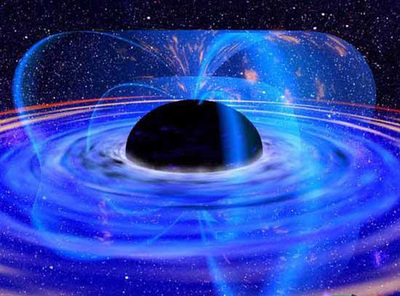In the course of a long life Cavendish made a string of signal discoveries—among much else he was the first person to isolate hydrogen and the first to combine hydrogen and oxygen to form water—but almost nothing he did was entirely divorced from strangeness. To the continuing exasperation of his fellow scientists, he often alluded in published work to the results of contingent experiments that he had not told anyone about. In his secretiveness he didn't merely resemble Newton, but actively exceeded him. His experiments with electrical conductivity were a century ahead of their time, but unfortunately remained undiscovered until that century had passed. Indeed the greater part of what he did wasn't known until the late nineteenth century when the Cambridge physicist James Clerk Maxwell took on the task of editing Cavendish's papers, by which time credit had nearly always been given to others.
在卡文迪许漫长的一生中,他取得了一系列重大发现--其中,他是分离氢的第一人,把氢和氧化合成水的第一人--但是,他所做的一切都脱离不了"古怪"两个字。他经常在出版的作品中提到从没有告诉过任何人的实验结果,这使他的科学家同行们老是很气恼。但是,尽管遮遮掩掩,他不光模仿牛顿,而且想要努力超过他。他对导电性能的实验超前了时代一个世纪,但不幸的是,直到那个世纪过去才被人发现。实际上,他的大部分成就直到19世纪末才为人所知。那个时候,剑桥大学物理学家詹姆斯·克拉克·麦克斯韦承担了编辑卡文迪许文献的任务。在此之前,发现虽然是他的,但功劳几乎总是别人的。

Among much else, and without telling anyone, Cavendish discovered or anticipated the law of the conservation of energy, Ohm's law, Dalton's Law of Partial Pressures, Richter's Law of Reciprocal Proportions, Charles's Law of Gases, and the principles of electrical conductivity. That's just some of it. According to the science historian J. G. Crowther, he also foreshadowed "the work of Kelvin and G. H. Darwin on the effect of tidal friction on slowing the rotation of the earth, and Larmor's discovery, published in 1915, on the effect of local atmospheric cooling . . . the work of Pickering on freezing mixtures, and some of the work of Rooseboom on heterogeneous equilibria."
卡文迪许发现或预见到了能量守恒定律、欧姆定律、道尔顿的分压定律、里克特的反比定律、查理的气体定律以及电传导定律,但都没有告诉别人。这只是其中的一部分。据科学史家J.G.克劳瑟说,他还预见了“开尔文和G.H.达尔文关于潮汐摩擦对减慢地球自转速度的作用的成果、拉摩尔关于局部大气变冷的作用的发现(发表于1915年)......皮克林关于冷冻混合物的成就以及罗斯布姆关于异质平衡的某些成果”。
Finally, he left clues that led directly to the discovery of the group of elements known as the noble gases, some of which are so elusive that the last of them wasn't found until 1962. But our interest here is in Cavendish's last known experiment when in the late summer of 1797, at the age of sixty-seven, he turned his attention to the crates of equipment that had been left to him—evidently out of simple scientific respect—by John Michell.
最后,他还留下线索,直接导致一组名叫惰性气体的元素的发现。其中有几种是极难获得的,最后一种直到1962年才被发现。不过,我们现在的兴趣是卡文迪许所做的最后一次著名的试验。1797年夏末,67岁高龄的他把注意力转向约翰·米歇尔显然只是出于科学上的敬意留给他的几箱子设备。












